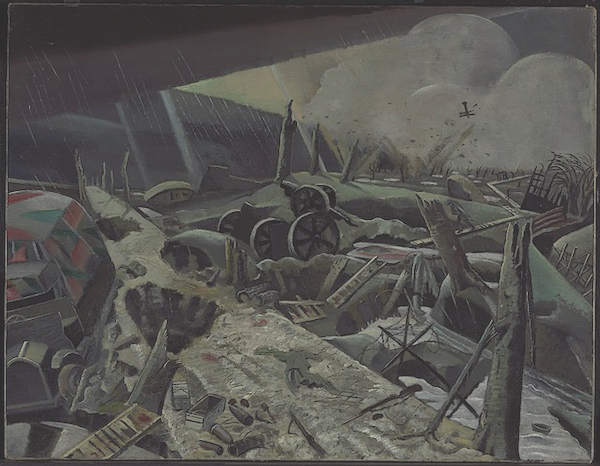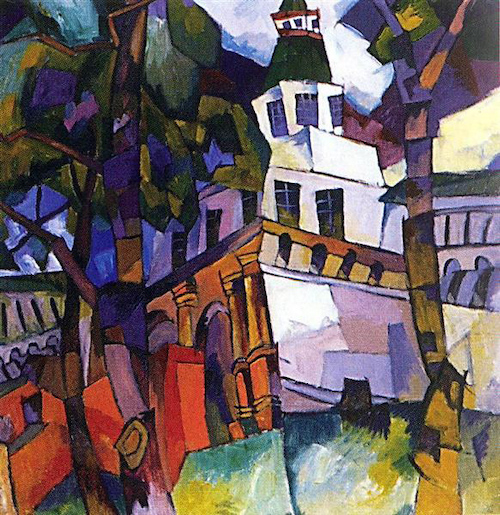Dr C. Hugo Herfst, OblSB, and his wife, Jackie, recently returned to Guatemala where they had previously served for over 20 years. He is an Associate Fellow of the KLC.

Last year, before the developments in the Ukraine, Pope Francis made a helpful distinction between architects and artisans of peace. Few of us would be included in the guild of international peace architects as key players on the global stage. All of us, however, can contribute to peace as artisans. Yet even artisans need some kind of inherited family secret recipe or insight to produce the desired bread, cheese or furniture. For Christian artisans of peace, the inherited insight is found in the grand narrative of Scripture and if our pressing desire is to be peacemakers at such a time as this, Scripture must inform our efforts.
Scripture has been described as an encyclopaedia of utopias and dystopias, where the idea of utopia is constructed in terms of shalom. Utopia and dystopia are juxtaposed throughout the narrative: creation versus fall; the creational vocation of both Adam and Eve in the imago Dei versus fratricide and exploitation; Exodus as liberation to settle in a land flowing with milk and honey versus the humiliating exile away from that same land. Yet even in the darkest dystopia, the light of God’s promise shines on a more hopeful future of a genuine utopia.
At a time when our global community struggles wearily to exit the pandemic, as we watch with horror as Russian forces inflict intense suffering on the Ukrainian people in a motley mixture of twisted nationalism and nefarious religious illusions, the very possibility of utopia seems suspect. We desperately want authentic shalom, not some Pollyanna version of a pipe dream. Do we still dare to hope?
Perhaps the more urgent question is: What should we hope for? Which utopia should we seek? Do we simply pine for a pre-pandemic world? Again, Scripture guides our reflection. Ecclesiastes rejects the dystopia of greed, disordered loves or unbridled economic growth in favour of the utopia of the ordinary: the celebration of all of life coram Deo – either when days are good, or honest reflection when things are less than optimal. Prophetic literature is replete with rich images of a utopia that continues to resonate with the best futures that humans could imagine: swords beaten into ploughs; a fraternal, ecological solidarity between the rest of creation and humans; and a reversal of infertility so that fruitfulness and abundance push against narrow limits of scarcity.
The biblical utopia is really all about Life; a dynamic, communal life shaped by mercy, righteousness and justice that delights God far more than material wealth, military power or technological prowess (Jer 9:23–24). At its deepest level it is life with Yahweh, the God of the covenant; a life that the prophets insist is nothing less than the triumph of good over evil, life over death. It is a triumph which is decisively enfleshed in the life, death and resurrection of Jesus who demonstrates and announces the ultimate biblical utopia: the kingdom of God.

In this particularly poignant moment, we find ourselves living the tension between the “already” and the “not yet” of the kingdom of God. We yearn for utopia in a time of alarmingly frightful dystopia.
We are not alone.
Paul reminds us that all of creation has been groaning in labour pains – pregnant with utopian hope – for the promised future. We ourselves, who have the first fruits of the Spirit, groan while we wait and pray. Astonishingly, the Spirit himself groans as he intercedes with sighs that are too deep for words (Rom 8:18–27). There is a symphony of sighs that clings to God’s promise for a creation that will be set free from bondage to all that is evil and will obtain glorious freedom. As artisans of peace – and hope – we join our groaning to the Spirit’s sighs when our words seem inadequate. Thus, artisans of peace and hope will inevitably be people who see “useless” prayer as powerful, patient protest, confident that the final word will be life, a life that will be better than we could have possibly imagined. If utopia is often defined as no place, we need reminding that it is no place … as yet.
The Kirby Laing Centre for Public Theology in Cambridge. Charity registered in England and Wales. Charity Number: 1191741
Kirby Laing Centre, The New Mill House, Unit 1, Chesterton Mill, French’s Road, Cambridge, CB4 3NP
© 2022 The Kirby Laing Centre for Public Theology in Cambridge